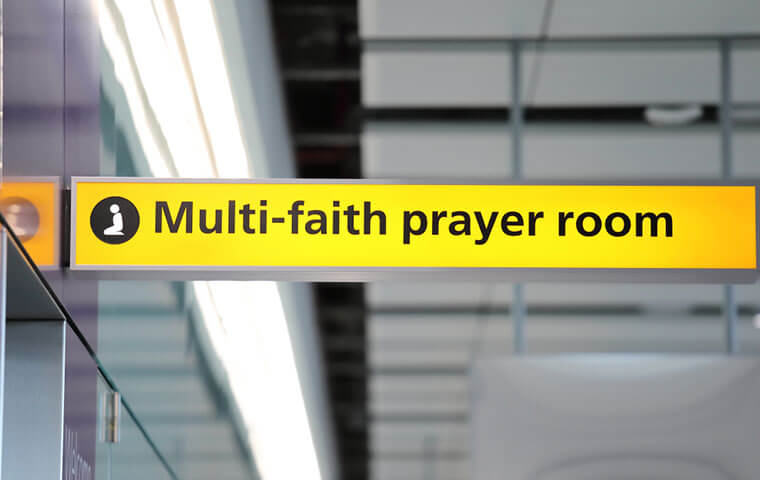 The case involves a former rural carrier associate who cited his Christian beliefs in refusing to work on Sundays. Image: TK Kurikawa/Shutterstock.com
By: FEDweek Staff
The case involves a former rural carrier associate who cited his Christian beliefs in refusing to work on Sundays. Image: TK Kurikawa/Shutterstock.com
By: FEDweek StaffThe U.S. Supreme Court has heard arguments in a dispute over the duty of federal agencies—as well as other larger employers—to accommodate an employee’s religious practices in matters such as scheduling work shifts.
At issue is a requirement in the Civil Rights Act that employers make “reasonable accommodations” for those practices unless doing so would inflict an “undue hardship” on the employer’s operations. The term “undue hardship” has been interpreted as allowing the employer to refuse an accommodation if it would have to incur more than a “de minimis [minimal] cost.” The case before the high court could result in a requirement that employers show a more extensive impact, which would be up to the court to define.
The case involves a former rural carrier associate who cited his Christian beliefs in refusing to work on Sundays, triggering complaints from other employees that they were being called to work on Sundays excessively. Facing potential firing, the employee resigned and filed the suit. A district court and then an appeals court held that accommodating him put more than a minimal burden on the USPS and that the impact on other employees amounted to an undue hardship.
At issue during the oral arguments before the high court was whether the standards for requiring accommodations for religious practices are disproportionately lower than other workplace protections, and whether the “cost” consideration involves only finances but also involves matters such as workplace morale.
A related consideration was that while compliance with other workplace provisions, such as changes to work stations to accommodate certain conditions, generally do not directly affect other employees, setting work schedules to accommodate an employee’s religious practices more commonly does affect others.
The high court previously heard oral arguments in a case involving the FLRA’s jurisdiction over disputes involving “dual status” technicians, who are DoD employees who also must hold positions in the National Guard or Reserves to maintain their federal employment. Decisions in both are expected before July.
Senate Eyes Vote to Pay Federal Employees Working Unpaid
Series of Bills Offered to Address Shutdown’s Impact on Employees
Public Starting to Feel Impact of Shutdown, Survey Shows
OPM Details Coverage Changes, Plan Dropouts for FEHB/PSHB in 2026
Does My FEHB/PSHB Plan Stack Up? Here’s How to Tell
2025 TSP Rollercoaster and the G Fund Merry-go-Round
See also,
TSP Takes Step toward Upcoming In-Plan Roth Conversions
5 Steps to Protect Your Federal Job During the Shutdown
Over 30K TSP Accounts Have Crossed the Million Mark in 2025

